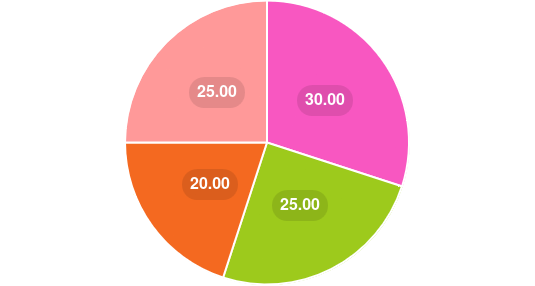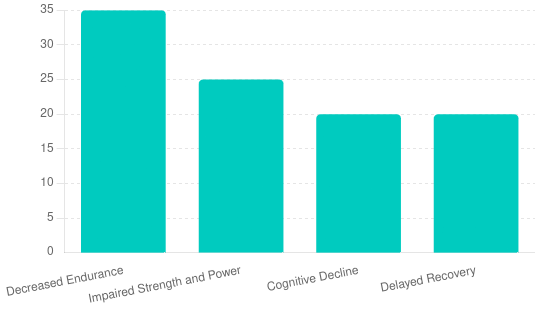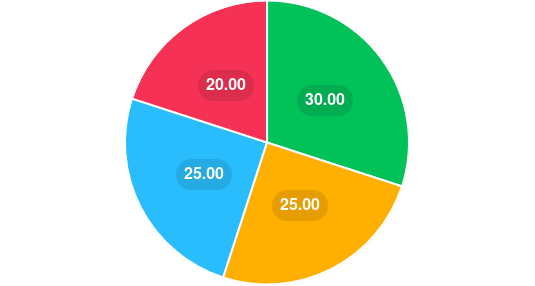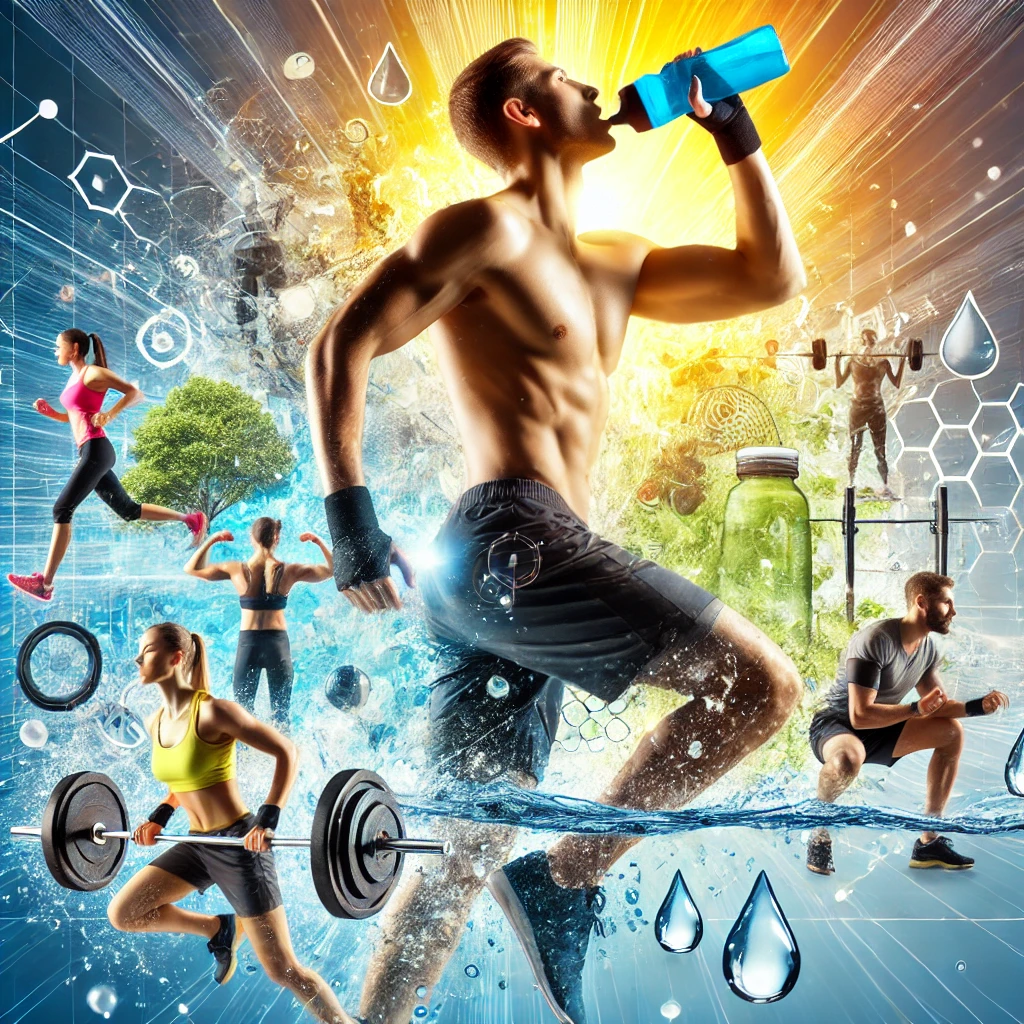Staying hydrated is a fundamental aspect of maintaining overall health and optimizing fitness performance. Water, often overlooked in favor of more complex nutritional strategies, plays a crucial role in almost every physiological function. This article delves into the science behind hydration and explains why water is essential to your fitness journey.
The Importance of Hydration

Here’s a pie chart illustrating “The Importance of Hydration” with the following categories and their hypothetical significance:
- Regulation of Body Temperature: 30%
- Nutrient Transport and Energy Production: 25%
- Joint Lubrication and Muscle Function: 20%
- Cellular Health and Recovery: 25%
This visual representation emphasizes the various crucial roles hydration plays in maintaining fitness and overall health.
Water makes up about 60% of the human body and is involved in numerous vital processes. Here are some key reasons why staying hydrated is essential for fitness:
- Regulation of Body Temperature: During exercise, your body generates heat. Sweating is your body’s natural cooling mechanism, and water is the primary component of sweat. Adequate hydration helps maintain body temperature and prevent overheating.
- Nutrient Transport and Energy Production: Water is a critical component of blood, which transports nutrients to cells and removes waste products. Proper hydration ensures efficient delivery of oxygen and essential nutrients, which are necessary for energy production during workouts.
- Joint Lubrication and Muscle Function: Water acts as a lubricant for joints and aids in the smooth movement of muscles. Dehydration can lead to muscle cramps, stiffness, and increased risk of injury.
- Cellular Health and Recovery: Hydration is vital for cellular health. Water facilitates various biochemical reactions, including protein synthesis and muscle repair, crucial for recovery post-exercise.
How Dehydration Impacts Performance

Here’s a bar chart illustrating “How Dehydration Impacts Performance” with the following hypothetical impact percentages:
- Decreased Endurance: 35%
- Impaired Strength and Power: 25%
- Cognitive Decline: 20%
- Delayed Recovery: 20%
This chart highlights the significant negative effects dehydration can have on various aspects of physical performance and overall well-being.
Even mild dehydration can have significant effects on physical performance and overall well-being. Here’s how dehydration can hinder your fitness goals:
- Decreased Endurance: Dehydration reduces blood volume, making the heart work harder to pump blood. This leads to quicker fatigue and reduced endurance.
- Impaired Strength and Power: Muscle strength and power output decrease when the body is dehydrated. This can affect performance in weightlifting, sprinting, and other high-intensity activities.
- Cognitive Decline: Hydration is crucial for cognitive function. Dehydration can impair concentration, coordination, and decision-making, which are important for both exercise and daily activities.
- Delayed Recovery: Lack of water hampers the body’s ability to remove metabolic waste products and deliver nutrients to muscles, slowing down recovery processes.
How Much Water Do You Need?
The amount of water needed varies based on individual factors such as body weight, climate, and exercise intensity. A general guideline is to drink at least 8-10 glasses of water per day. However, athletes and those engaging in vigorous physical activity may need more.
Tips for Staying Hydrated
- Start Your Day with Water: Begin your day with a glass of water to kickstart your hydration.
- Drink Regularly: Don’t wait until you’re thirsty to drink water. Thirst is a late indicator of dehydration.
- Carry a Water Bottle: Keep a water bottle with you to encourage regular sips throughout the day.
- Monitor Your Urine: Pale yellow urine typically indicates good hydration, while dark yellow suggests you need more fluids.
- Include Hydrating Foods: Incorporate water-rich foods such as fruits and vegetables into your diet.
- Adjust for Activity and Weather: Increase water intake during hot weather and intense workouts.
The Role of Electrolytes in Hydration

Here’s a pie chart illustrating “The Role of Electrolytes in Hydration” with the following hypothetical role percentages:
- Electrolyte Balance: 30%
- Preventing Hyponatremia: 25%
- Sources of Electrolytes: 25%
- Supplementation: 20%
This visual representation emphasizes the various critical functions electrolytes perform in maintaining proper hydration and overall health.
While water is essential, it’s not the only component of effective hydration. Electrolytes—minerals such as sodium, potassium, calcium, and magnesium—play a crucial role in maintaining fluid balance and supporting various bodily functions. Here’s why electrolytes are important and how to ensure you’re getting enough:
- Electrolyte Balance: Electrolytes help regulate nerve and muscle function, balance blood acidity and pressure, and rebuild damaged tissue. They work alongside water to ensure cells remain hydrated and functional.
- Preventing Hyponatremia: Consuming too much water without adequate electrolytes can lead to a condition called hyponatremia, where sodium levels in the blood become dangerously low. This is particularly a concern during prolonged physical activities where sweating is excessive.
- Sources of Electrolytes: Natural sources of electrolytes include fruits (such as bananas and oranges), vegetables (like spinach and potatoes), dairy products, nuts, and seeds. Sports drinks can also help replenish electrolytes, but be mindful of their sugar content.
- Supplementation: In some cases, especially for high-endurance athletes, electrolyte supplements might be necessary to maintain optimal performance and recovery.
Hydration Strategies for Different Types of Workouts
| Type of Workout | Hydration Strategy |
| Endurance Training | Drink small amounts of water regularly during workout; Consider an electrolyte drink if activity exceeds one hour. |
| Strength Training | Sip water between sets; Ensure adequate hydration before starting session. |
| High-Intensity Interval Training (HIIT) | Hydrate well before starting; Take short breaks to drink water if needed during workout. |
| Yoga and Pilates | Drink water before and after session; Hydrate well especially in hot environments like Bikram yoga. |
Hydration needs can vary significantly based on the type of workout you’re doing. Here are some tailored strategies:
- Endurance Training: Long-distance running, cycling, and other endurance activities can lead to significant fluid and electrolyte loss. Aim to drink small amounts of water regularly during your workout and consider an electrolyte drink if the activity exceeds one hour.
- Strength Training: While strength training might not lead to as much visible sweat as endurance training, it’s still important to stay hydrated. Sip water between sets and ensure you’re adequately hydrated before starting your session.
- High-Intensity Interval Training (HIIT): HIIT workouts can lead to substantial fluid loss in a short period. Hydrate well before starting and take short breaks to drink water if needed during your workout.
- Yoga and Pilates: Even though these activities might seem less intense, they still require proper hydration, especially in hot environments like Bikram yoga. Drink water before and after your session.
Hydration and Diet: A Symbiotic Relationship
Your diet plays a significant role in maintaining hydration levels. Here’s how to optimize your diet for better hydration:
- Hydrating Foods: Incorporate foods with high water content, such as cucumbers, watermelon, strawberries, and tomatoes. These not only contribute to your hydration but also provide essential vitamins and minerals.
- Balanced Meals: Eating a balanced diet that includes sufficient fruits, vegetables, and lean proteins can help maintain electrolyte balance and overall hydration.
- Limit Diuretics: Be mindful of the intake of diuretics like caffeine and alcohol, which can increase urine production and lead to dehydration. If you consume these, increase your water intake to compensate.
Monitoring Hydration Status
| Method | Description |
| Thirst Check | Thirst is a simple and effective indicator. If you feel thirsty, you are already partially dehydrated. |
| Urine Color | Pale yellow urine typically indicates good hydration, while dark yellow suggests you need more fluids. |
| Body Weight | Weigh yourself before and after workouts. A significant drop in weight can indicate fluid loss, and you should replenish accordingly. |
| Hydration Apps and Gadgets | Various apps and smart water bottles can help track your water intake and remind you to hydrate throughout the day. |
Regularly monitoring your hydration status can help you stay on track. Here are some methods to consider:
- Thirst Check: Thirst is a simple and effective indicator. If you feel thirsty, you are already partially dehydrated.
- Urine Color: As mentioned earlier, urine color is a practical guide. Aim for a light yellow color as an indicator of good hydration.
- Body Weight: Weigh yourself before and after workouts. A significant drop in weight can indicate fluid loss, and you should replenish accordingly.
- Hydration Apps and Gadgets: Various apps and smart water bottles can help track your water intake and remind you to hydrate throughout the day.
Incorporating proper hydration into your fitness regimen is not just about drinking water; it’s about understanding your body’s needs and responding appropriately. Whether through natural hydration methods or electrolyte supplements, staying hydrated can significantly impact your physical performance, recovery, and overall health.
By making hydration a priority, you equip your body to perform at its best, recover efficiently, and maintain the energy levels needed for daily activities. Remember, optimal hydration is a continuous process that requires attention and adjustment, just like any other aspect of your fitness journey. Stay proactive about your hydration to unlock your full potential and achieve your fitness goals.
Hydration is a cornerstone of health and fitness. Understanding the science behind it underscores the importance of drinking enough water daily. By prioritizing hydration, you can enhance your physical performance, improve recovery, and achieve your fitness goals more effectively. Remember, in the quest for fitness, water is your most reliable ally. Drink up and stay hydrated!

